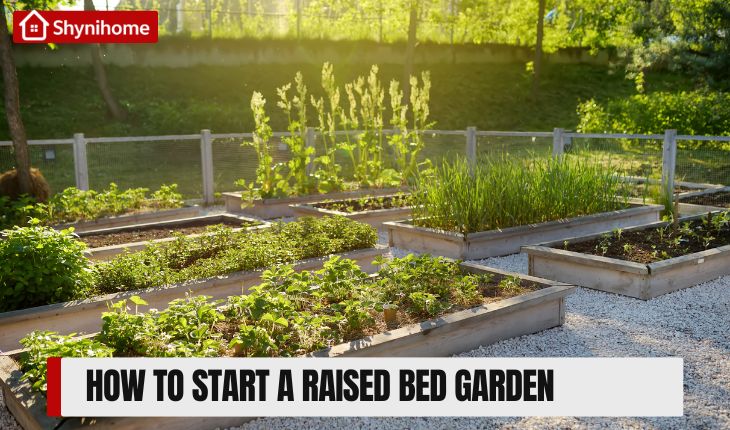
Living in the city with a small yard doesn’t mean you can’t enjoy the benefits of growing your own food or flowers. 💡 The perfect solution? A Raised Bed Garden!
Whether you’re a beginner gardener or someone looking to organize their planting space, raised beds make urban gardening easier, neater, and more productive — even in tight spaces! 🏙️🌿
Table of Contents
Toggle🌟 Why Choose a Raised Bed Garden?
- 🌱 Better soil control = healthier plants
- 🚫 Fewer weeds and pests
- 💦 Improved drainage
- 🪴 Easier to access and manage (no bending too much!)
- 📏 Perfect for small yards, patios, or even rooftops!
🧰 What You’ll Need to Start:
Here’s a basic checklist to build your own raised bed garden:
- 🪵 Wooden planks or garden bed kits
- 🔩 Screws and drill (or hammer and nails)
- 📏 Measuring tape
- 🛠️ Screwdriver or basic tools
- 🌿 Soil + compost mix
- 🌻 Seeds or seedlings
👉 Also Read: Best Organic Fertilizers for Home Garden
🪜 Step-by-Step Guide to Building a Raised Bed Garden

1️⃣ Choose the Right Spot
☀️ Pick a sunny area that gets at least 6–8 hours of sunlight daily.
Avoid areas with too much shade or water pooling.
2️⃣ Decide the Size
📏 Ideal size:
- Width: 3–4 feet (so you can reach from both sides)
- Length: As long as space allows
- Height: 6–12 inches for veggies, deeper for root crops
💡 Start small if you’re a beginner — one or two beds are enough!
3️⃣ Build the Frame
Use untreated wood (like cedar or pine), bricks, or recycled materials.
🪚 Secure the corners using screws or brackets.
🧱 Place the frame directly on soil or grass.
4️⃣ Layer the Bottom (Optional but Helpful)
Add layers for better drainage and weed control:
- Cardboard or newspaper
- Straw or wood chips
🧹 This blocks weeds and helps with moisture retention.
5️⃣ Fill with Soil Mix
Use a nutrient-rich mix:
- 60% topsoil
- 30% compost
- 10% perlite or sand (for drainage)
🌿 Healthy soil = strong plants = better harvests!
6️⃣ Plant Your Crops
Start with easy-to-grow plants:
- 🍅 Tomatoes
- 🥬 Lettuce
- 🌶️ Peppers
- 🌼 Marigolds (great for pest control)
🌱 Follow spacing and planting instructions on seed packets.
7️⃣ Water Regularly & Mulch
💧 Keep the soil moist, especially in the early weeks.
Add mulch (like straw or bark) to reduce evaporation and weeds.
8️⃣ Maintain and Rotate Crops
- Check for pests regularly 🐛
- Rotate plant types each season to prevent soil depletion
- Add compost every few weeks for ongoing nutrients
💡 Pro Tips:
✔️ Add a trellis for vertical crops (beans, cucumbers)
✔️ Install drip irrigation or soaker hose for easy watering
✔️ Use row markers or plant tags to stay organized
✔️ Cover with netting if birds or squirrels are a problem
👉 Also Read: Beginner Urban Gardening: A Simple Guide
🌿 Final Thoughts:
A Raised Bed Garden is the perfect way to grow more in less space, improve your yields, and add beauty to your yard — even if it’s small!
Once you start, you’ll love the control and simplicity it brings to your gardening life. 🌞🪴
